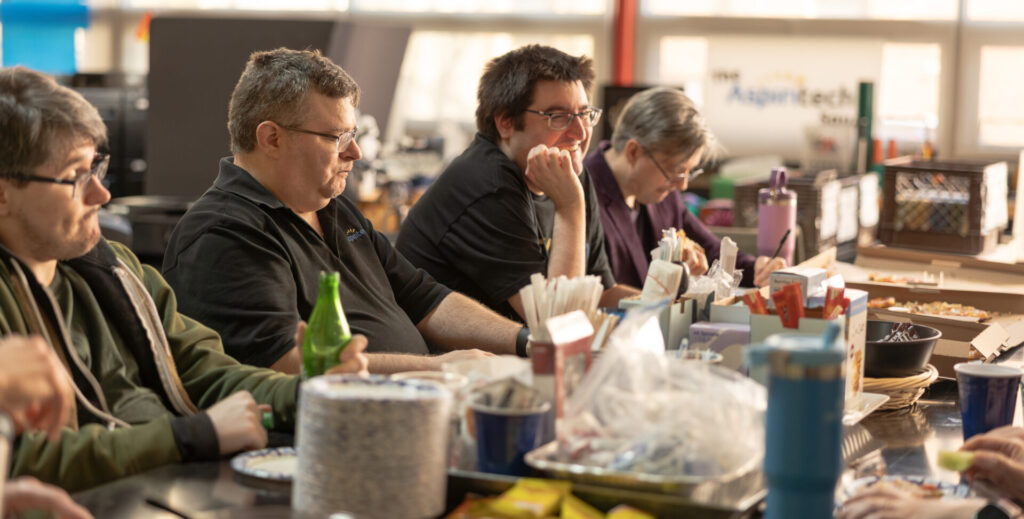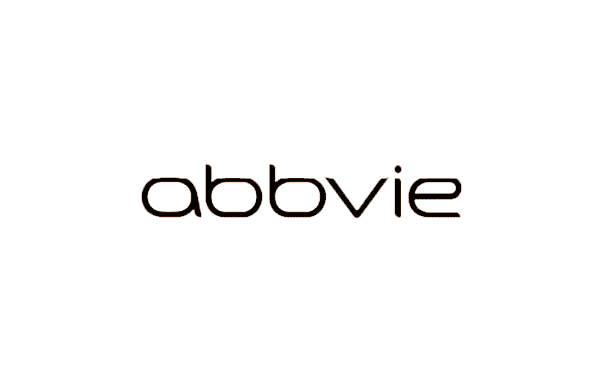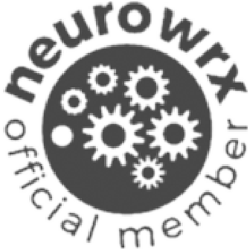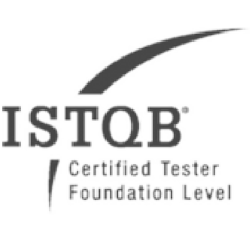The Public Perception of ASD, & How I Fit Into IT
When most people think of autism in pop-culture, examples like Raymond Babbitt (a.k.a. “Rain Man”) or Sheldon Cooper bubble-up to the forefront: white, male “autistic” savants with an innate nous for STEM subjects. Which is funny, because neither Ray or Sheldon were ever officially described as being on the ASD-spectrum by the people who created the film & TV-series the aforementioned characters starred in.
… I should probably insert a typed disclaimer here, stating that pop-culture isn’t exactly known for its neuro-medical accuracy in diagnosing fictional characters.
I, on the other hand, am an adult ASD-diagnosed female with a predilection towards matters of the visual & linguistic/literary sort—in other words, I’m very talented (& skilled!) when it comes to artistic & written endeavors, but struggle with anything to do with mathematics & calculations; in short, I’m terrible at math, & numbers make me cry (hmm, it turns out I might have undiagnosed dyscalculia, & that would explain a lot, honestly).
My Superhero Origin-Story
I wasn’t legally diagnosed until adulthood, but my parents started noticing that I was a bit … ‘different‘ from other kids my age. To elaborate, I had a habit of organizing my action figures & other toys into methodical patterns & rows for the sheer joy of it, I loathed prolonged direct eye-contact & unexpectedly getting water dripped in my eyes (Augh!), I stimmed a lot via spinning in place, I launched into unprovoked soliloquies about my special interests, & I continuously gesticulated with my hands, especially when conversing with other people (but I was also raised Italian, so who knows about that). There were a plethora of other unusual traits that I displayed, & a surfeit of special interests, but since there’s so many of them, I’ll just mention a few:
- Animals (doesn’t matter the classification, they’re all awesome)
- Dinosaurs
- GODZILLA
- Ancient Egypt (they worshiped cats, & their women were known for having more bodily-legal autonomy than in many other concurrent civilizations)
My parents went to a number of child-specialists back then, trying to figure out exactly what the Sam Hill was up with me, but given that this was rural Wisconsin in the early-to-mid ’90s, the general consensus was that I was “really smart & eccentric,” & maaaayybee I should be prescribed Ritalin for my non-standard behavior—just a teensy bit? My mom emphatically vetoed the “medicate your child into drug–addled normality” suggestion, which was for the best, really.
None of the psychiatrists or psychologists that had met with me as a kid ever mentioned autism, or that I might be on the spectrum; no one even brought that up as a possibility until I was in middle school.
The principal at my middle school took my mom aside when I was 12-years old, & informed the latter that it was possible, even likely, that I had Asperger’s; my principal gave a brief explanation of what precisely Asperger’s was, & my mom’s curiosity was piqued. She & I both made a deep-dive into researching autism & Asperger’s, & it seemed to us the perfect explanation for my many traits & symptoms.
Armed with this new info, my mom & I went to some more psychiatrists & psychologists, & presented them with our findings, but all of them just reiterated the same old “you‘re really smart & eccentric” diagnosis. This would continue until nearly the end of my stint as a college student.
My 2nd-eldest aunt arranged for me to see a child-psychologist, who, after several thorough interviews, finally gave me a formal legal diagnosis of Asperger’s (alongside a test-result for a verbal IQ of 160, yay); this took place in January 2013, during my last semester of college. Better late than never, I guess.
How/Why I Ended up in Chicago
After graduating from Viterbo University with a Bachelor of Fine Arts, I had a college degree (the 1st in my family to do so), but no job. Luckily, I had had prior discussions with my 2nd-eldest aunt & uncle, who agreed to help me move down to Chicago & get situated, as the job-prospects in Wisconsin for a college-graduate on the autism-spectrum were … scant, to put it mildly. I needed a job that could pay a living wage, & I reasoned that I’d have better (& more!) opportunities in a densely-populated metropolis like Chicago, as opposed to the dearth of options I’d surely find in the backwoods of the Midwest.
How/Why I Was Hired at Aspiritech
The journey to becoming an employee at Aspiritech was fairly unconvoluted (or was it?!). During the latter-part of 2013, I was spending a few weeks down in Missouri with my 2nd-eldest aunt & uncle (it was very fun). At the same time, one of my other aunts attended a job fair/disabilities awareness event on my behalf, somewhere deep in the Chicago suburbs, & happened upon a pamphlet for Aspiritech, extolling its virtues—along with its address, phone number, & hours of operation. She passed along said pamphlet to the aunt I was staying with at the time, & that aunt scrutinized its contents, & decided that that NFP was as good a place to arrange for a job-interview as any. She made a phone-call & ostensibly spoke with Moshe, & the date for an interview was set for a morning in December (brrr!).
On that day, layered in half-a-million sweaters & scarves (the polar-vortex was in full-swing, what did you expect?), I showed up at the office for Aspiritech, my aunt & uncle in-tow, & we all greeted Moshe (& the rest of the employees currently at-work in the office). The four of us sat down & had a chat; Moshe explained what Aspiritech was, & its purpose for being, & how to begin training as a potential employee, if I so chose to do so, while I provided him with my back-story—i.e., the particulars of how I got my legal diagnosis of Asperger’s syndrome, my individual neurodivergent talents & traits, as well as my at-the-time job-skills, college degree (BFA, baby!), & letter(s) of recommendation.
Moshe seemed pretty amenable to me beginning training as a possible employee, & I was pretty game to do so, ASAP (I desperately needed a job at the time, & this option seemed to be right in my wheelhouse). The two of us decided I’d start my training after the X-Mas/New Year holidays, whenever I had the availability. In this case, my availability was Tuesdays, Thursdays, & Fridays.
For about a month-&-a-half, I would come to the office for 5-6 hours & do my training on various web pages/websites & their modules, learning how to identify & report errors, glitches, concerning issues, & the like. Moshe & some of the other people there would explain some of the QA jargon that I didn’t already know, & I did my utmost to absorb all of that like an over-caffeinated, eager-to-please sponge. After nearly 6-weeks of this, I pulled Moshe aside one day & asked him if he was pleased with the quality of my work. He answered in the affirmative, & so I asked him if he’d also be willing to hire me as an employee (part-time)—he told me, “Yes,” & asked me when I’d like to start … & that’s how, on February 10, 2014, I began my 1st day as an employee of Aspiritech. Mission-accomplished!
Learning How To Do QA/Tech Work
Upon hearing the bare-bones premise of what being a Quality Assurance Analyst entailed, I’d felt a little … uncertain, initially envisioning a coding-mathematics genius with a nigh-omniscient grasp of software/hardware functions. Like one of the antagonists from The Matrix, but (slightly) less intimidating. The reality was much less daunting, though, & considerably more straightforward. Depending on the circumstances, my supervisor would either tell me what client-project(s) needed testers working on it (& then I would attach myself to it), or I could simply request to be put on a specific project that happened to be available.
Getting started on a client-project went something like this: One of the more senior analysts would direct me to the training documents for the project, arrange for me to get access for a client’s specific website or web page(s) (if necessary), & walk me through the testing-protocols—providing demonstrations & explanations for how to conduct appropriate QAing when I asked for clarification about some of the details.
I’m an avid reader & visual-kinesthetic learner who absorbs knowledge best through repeat exposure (i.e., “wax on, wax off“), so this worked really well for me.
What It‘s Like Performing a QA Analyst‘s Tasks
For me, performing the job-duties of a QA Analyst is something I really enjoy; most of the requirements play to my strengths:
- attention to minute, easily-overlooked details (meticulousness)
- the ability to hyper-focus on a subject or task for hours on end—scrutinizing a client’s software or hardware for any disparities or issues
- being able to concisely or comprehensively articulate an error or glitch I’d observed & recorded/reported in a Defect Log (How? What? Where? When? Why? WhoDunIt? The butler; it’s ALWAYS the butler.)
The bulk of what I did comprised exploratory testing (i.e., poking & prodding various buttons, features, & links to see what they did)—usually at the behest of Empire, & hardware & regression testing—a stipulated element for the vast majority of test-cases written for Bose.
After becoming much more familiar with the parlance of our various clients’ software/hardware devices—Bose, Empire, & Astellas-Salesforce, mostly—& our own analyst-written test-cases, I would occasionally sidle over to whoever my project-lead happened to be at the time, & point out sections of the test-cases that needed to be edited, streamlined, & updated, on account of prior builds/devices/features/what-have-you becoming obsolete (or non-existent).
Below is a (extremely paraphrased) conversation I had with a previous project-lead
“By the way, this paragraph in test-case #bajillion could do with the 3rd & 4th sentences being excised & the Expected Results being edited, since the iteration of that device was recently discontinued by our client & replaced by a newer, improved model, & all of our test-cases in TestRail pertaining to that one appliance haven’t been updated accordingly, yet. Oh, & we’ve switched around that test-case’s sequence of actions to be undertaken, for verifying that the newly-added features, y’know, really work, so maybe give whichever QA Tester gets assigned that test-case a heads-up as well.” “Yeah, sure thing—did the client ever tell us why they replaced the older model?” “Ah, one of our analysts was running a regression test, & when she pushed the “Off” button on the device, its speakers burst into flames & demonic voices started chanting Chthonic verses out of them. You know, the usual.”
- Disclaimer: there has been no record—at all—of any of our clients’ devices being infernally-possessed, but one device actually did self-destruct while being tested on, heralded by an internal mini-Michael Bay explosion & smoke pouring out of its speakers, so there’s that.
Employment at a Company Where the People Really Care about YOU
What I find most appealing about working at a company like Aspiritech is that my physical & psychological (& financial!) well-being is treated with utmost import. If I’m feeling overly stressed-out or just incredibly under the weather, I can reach out to my support-lead &/or team-lead & discuss it with them, without fear of some sort of callous dismissal (“pull yourself up by your bootstraps!”)—or worse, an underhanded reprisal of some kind. Being able to ask for much-needed help & receive it without censure does wonders for bolstering my self-worth—& productivity.
When I need to call in sick unexpectedly & dutifully inform my supervisors, there’s no knee-jerk remonstration, only concern & well-wishes (“Get well soon, please!”)
If I need advice or help with a project-related issue, there’s almost always a co-worker or project-lead available to provide assistance (within a reasonable time frame, of course)
Prior to being employed at this nonprofit, I’d already worked at a handful of jobs (some were really fun, others were really … not), but Aspiritech is the 1st place that I can recall where empowering, educating, & supporting its neurodivergent (& neurotypical) employees with reasonable accommodations was explicitly & irrevocably defined as part of a company’s mission statement. I’ve spoken with a good quantity of my fellow analysts, & the general consensus on working here is that it’s immensely rewarding & validating. With that being said, I’m hoping that if you ever get the opportunity & inclination, you’ll come join us here. It’s a great place to be, & we can’t wait to meet you.





















